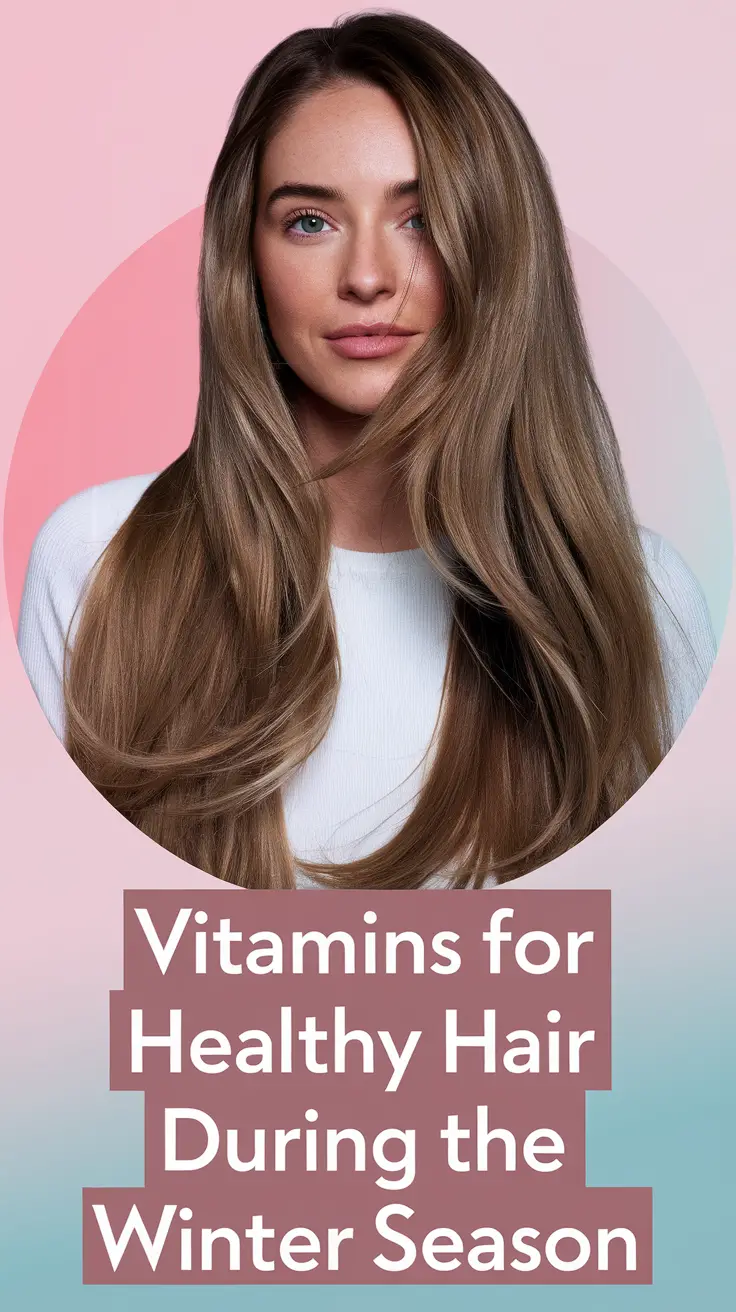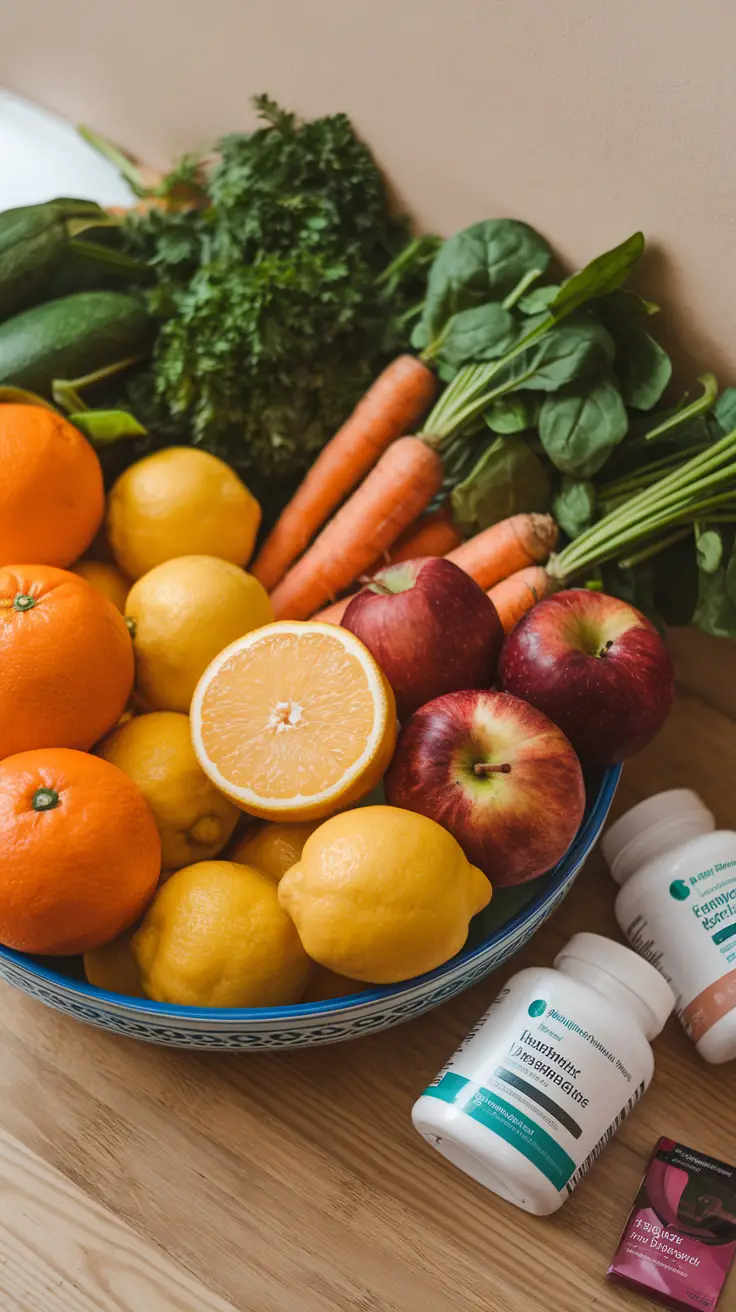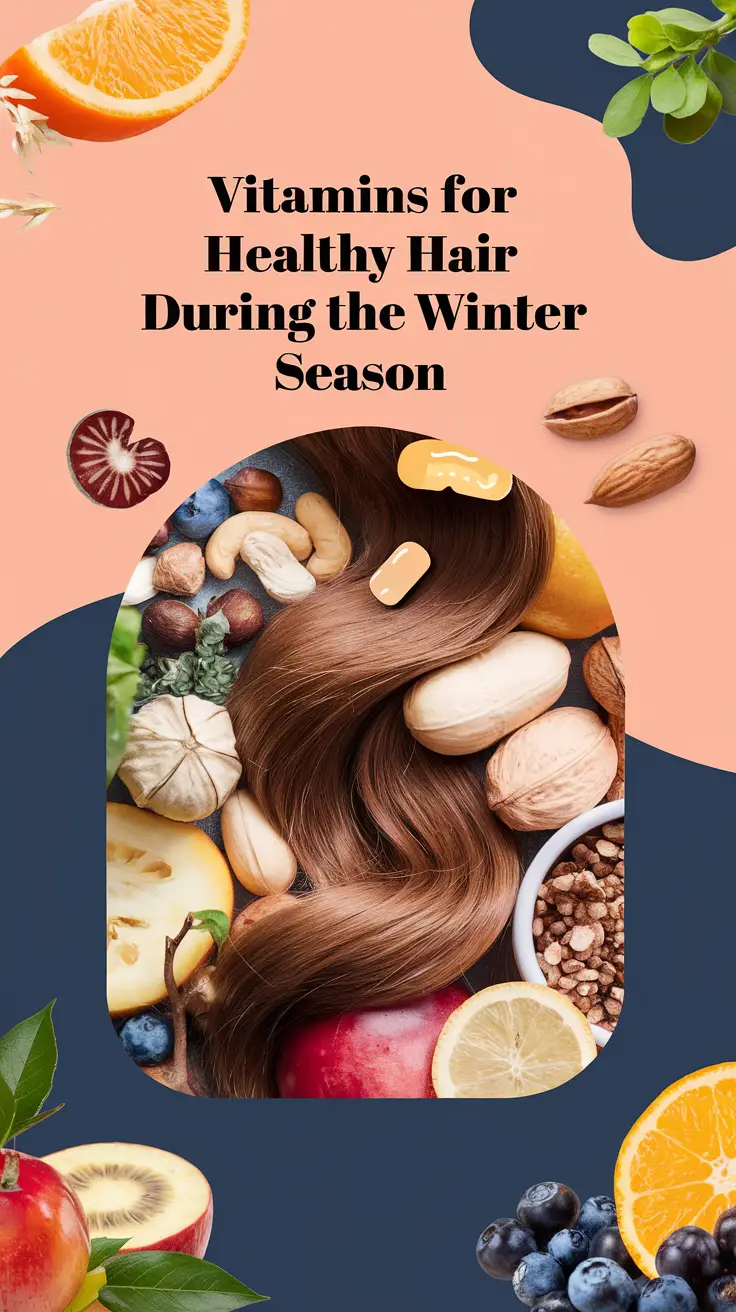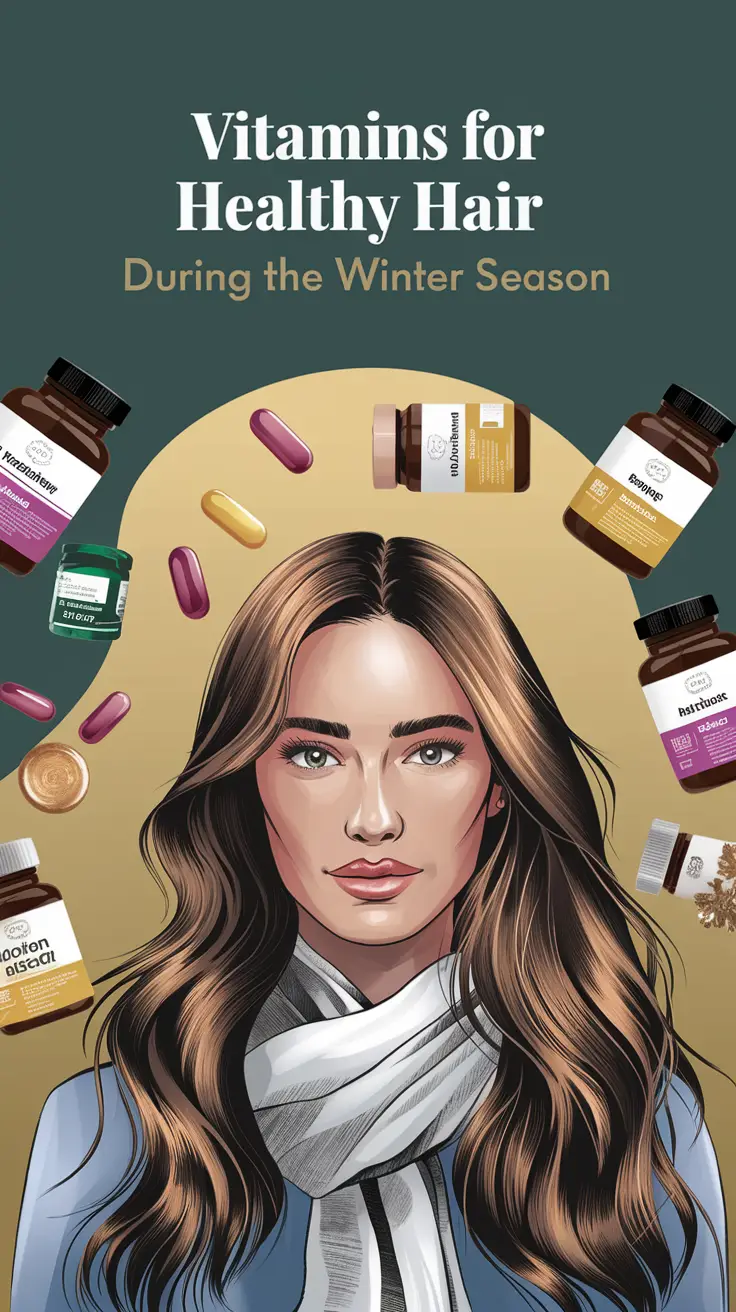Vitamins for Healthy Hair During the Winter Season
Winter can be a challenging time for maintaining healthy hair. The cold, dry air outside combined with indoor heating can strip your hair of moisture, leading to dryness, brittleness, and increased hair fall. However, by focusing on the right vitamins and nutrients, you can keep your hair strong, shiny, and healthy all winter long.
In this article, I’ll guide you through everything you need to know about the essential vitamins for winter hair care, practical tips for incorporating them into your routine, and other factors that influence hair health during this season.
Why Winter Takes a Toll on Your Hair

During winter, hair and scalp health can suffer due to:
- Cold Temperatures: Cause the hair cuticle to lift, increasing moisture loss.
- Indoor Heating: Dries out the air, leading to a dehydrated scalp.
- Reduced Sunlight: Limits Vitamin D synthesis, a vital component for hair follicle health.
- Lifestyle Changes: Less fresh produce and more stress during the holidays can affect your overall nutrient intake.
Addressing these challenges requires a holistic approach, starting with proper nutrition.
Key Vitamins and Nutrients for Winter Hair Health
1. Vitamin D
- Why It’s Essential: Known as the “sunshine vitamin,” Vitamin D plays a crucial role in stimulating new hair follicles, promoting growth, and preventing hair thinning.
- Sources: Fatty fish (salmon, mackerel), fortified dairy products, egg yolks, mushrooms, and supplements.
- Daily Intake: 600 IU for adults.
- Tips: Add fortified orange juice to your breakfast or incorporate Vitamin D-rich fish into your weekly meals.
2. Vitamin C
- Why It’s Essential: This antioxidant protects against free radical damage and boosts collagen production, which strengthens hair strands.
- Sources: Citrus fruits, strawberries, kiwi, bell peppers, and broccoli.
- Daily Intake: 75 mg for women, 90 mg for men.
- Tips: Snack on oranges or add a squeeze of lemon to your tea for a daily Vitamin C boost.
3. Biotin (Vitamin B7)
- Why It’s Essential: Supports keratin production, the protein that forms the structure of your hair. A deficiency can lead to brittle hair and hair loss.
- Sources: Eggs, almonds, walnuts, sweet potatoes, and avocados.
- Daily Intake: 30 mcg for adults.
- Tips: Start your day with a breakfast that includes eggs and avocado toast.
| Vitamin | Key Role in Hair Health | Food Sources | Daily Intake |
|---|---|---|---|
| Vitamin D | Stimulates hair follicle growth | Fatty fish, fortified milk | 600 IU |
| Vitamin C | Collagen production and strand protection | Citrus fruits, bell peppers | 75-90 mg |
| Biotin | Keratin production for stronger hair | Eggs, almonds, avocados | 30 mcg |
4. Omega-3 Fatty Acids
- Why It’s Essential: Nourishes the scalp, reduces inflammation, and promotes hair elasticity.
- Sources: Salmon, chia seeds, flaxseeds, walnuts, and fish oil supplements.
- Tips: Sprinkle chia seeds on your yogurt or oatmeal for an easy omega-3 boost.
5. Vitamin E
- Why It’s Essential: An antioxidant that repairs damaged hair follicles and improves scalp circulation.
- Sources: Sunflower seeds, almonds, spinach, and avocado.
- Daily Intake: 15 mg for adults.
- Tips: Blend spinach and avocado into a smoothie for a Vitamin E-rich snack.
6. Iron
- Why It’s Essential: Carries oxygen to hair follicles, supporting growth and strength. A deficiency can cause hair to become dull and weak.
- Sources: Red meat, lentils, spinach, tofu, and fortified cereals.
- Daily Intake: 18 mg for women, 8 mg for men.
- Tips: Pair iron-rich foods with Vitamin C sources to enhance absorption.
| Nutrient | Hair Benefits | Best Sources |
| Omega-3 Fatty Acids | Nourishes scalp and reduces dryness | Salmon, chia seeds, walnuts |
| Vitamin E | Repairs follicles and improves circulation | Almonds, spinach, avocado |
| Iron | Strengthens hair and supports oxygen delivery | Red meat, lentils, spinach |
7. Zinc
- Why It’s Essential: Supports tissue repair and maintains the health of oil glands around hair follicles.
- Sources: Shellfish, pumpkin seeds, chickpeas, and beef.
- Daily Intake: 8 mg for women, 11 mg for men.
- Tips: Add roasted pumpkin seeds to your salads for a zinc boost.
Additional Hair Care Tips for Winter
- Hydrate: Drink plenty of water to combat dryness from indoor heating.
- Protect Your Hair: Wear a hat or scarf when outdoors to shield hair from cold winds.
- Use Moisturizing Products: Opt for shampoos and conditioners designed for hydration.
- Scalp Massages: Use natural oils like argan or coconut oil to nourish your scalp and stimulate blood flow.
- Humidify Your Home: A humidifier can add moisture to the air and prevent a flaky scalp.
- Avoid Heat Styling: Minimize the use of hairdryers and straighteners, which can exacerbate dryness.
- Regular Trims: Prevent split ends by trimming your hair every 6-8 weeks.
Conclusion
Healthy hair during the winter season is achievable with the right balance of nutrition, proper care, and smart lifestyle choices. By incorporating essential vitamins like Vitamin D, Biotin, and Omega-3s into your diet and following practical hair care tips, you can ensure your hair remains vibrant and strong. Consistency is key—the benefits of these nutrients will manifest over time, reflecting in the health of your hair.
FAQs
- Can I rely solely on supplements for hair health? While supplements can help address deficiencies, a balanced diet is always the best approach as it provides a wide range of nutrients.
- How long does it take to see improvements in hair health? Hair growth is a slow process, so noticeable changes may take 3-6 months of consistent dietary and care practices.
- Are there risks of over-supplementing? Yes, excessive intake of vitamins like Vitamin A or Zinc can cause adverse effects. Always follow recommended dosages.
- What are some quick meals for winter hair health? Try a salmon salad with spinach or a smoothie with avocado, almond milk, and chia seeds.
- How can I protect my hair from winter damage? Use a humidifier, avoid overwashing, and wear protective headgear when outdoors.



